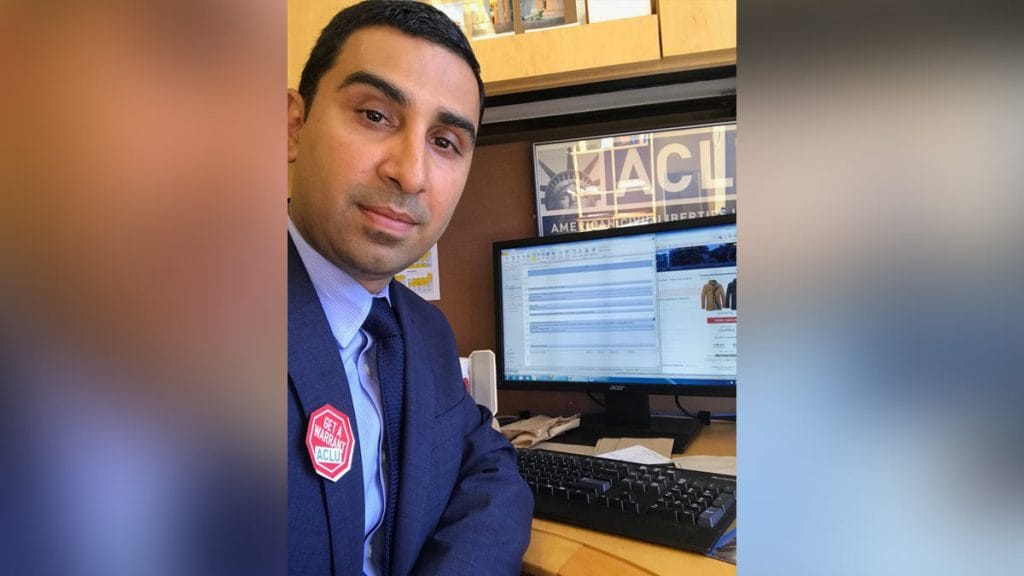New Delhi: Over the weekend, Democratic presidential frontrunner Bernie Sanders created a stir in India by stating that New Delhi’s actions in Kashmir were “unacceptable” while calling for the United States to support a UN-backed peaceful resolution in the region.
Many believe that his campaign manager, Faiz Shakir, a progressive advocate and Pakistani American, is responsible for authoring Sanders’ Kashmir speech. ThePrint looks at Faiz Shakir, an activist with a stellar CV and deep ties with the Democratic Party.
‘A progressive hustler’
Shakir has been deeply immersed in the world of activism and has managed to cultivate several important connections in the Democratic Party. Born to Pakistani immigrants in the US, Shakir went on to study at Harvard and Georgetown universities.
Over the past decade-and-a-half, he has developed a stellar resume by working with some of the biggest Democratic legislators and top-notch think tanks and civil liberties advocacy groups.
When Sanders appointed Shakir as his campaign manager in March 2019, news website Daily Beast wrote, “In hiring Shakir, Sanders brings into the fold one of the Democratic Party’s better-travelled operatives — an official with limited campaign experience but with ties to the party’s think tank infrastructure, its Hill operations, and the larger progressive universe.”
Shakir’s ties with the top Democratic Party leadership
After completing his education at prolific institutions, Shakir began working as a legislative aide to former Florida governor, Bob Graham. He then went to work as a junior staffer in the 2004 John Kerry presidential campaign.
Following Kerry’s campaign, Shakir joined the liberal think-tank and advocacy group Centre for American Progress (CAP) in 2005. Back then, the CAP was headed by John Podesta, Bill Clinton’s Chief of Staff and Hillary Clinton’s controversial campaign manager. Shakir worked at CAP as a policy advisor.
Later that year, Shakir helped CAP launch the progressive news website ThinkProgress. Shakir was ThinkProgress’ editor-in-chief between 2007 and 2012 and helped turn it into a platform that garnered a lot of acclaim for its reporting on climate change.
After his stint at CAP and ThinkProgress, Shakir joined prominent Democratic legislator Nancy Pelosi’s team as the “director, new media”. Pelosi is currently the majority leader of the US House of Representatives (lower chamber).
Following his stint with Pelosi, Shakir went on to work with esteemed Democratic Senator Harry Reid, the Senate majority leader between 2007 and 2015.
Talking about Shakir’s importance, Reid’s deputy chief of staff said, “Reid did not make a big decision without consulting Faiz. There’s no one he trusted more on how the progressive community would react on something and no one whose advice he took more seriously on pushing him to the left.”
In 2016 when Shakir joined Sanders’ presidential campaign team, he drew a lot of ire from his former boss Podesta, who was then managing Clinton’s campaign. His displeasure at Shakir’s decision was revealed in the infamous “Podesta email leaks”.
During this time, as a bitter primary campaign ensued between Clinton and Sanders, according to news website OZY, Shakir was reported to have played the role of an “intermediary among various players”. Though Shakir’s efforts failed, this reflects his deep connections across the Democratic party.
Also read: Should India be offended by BBC, Washington Post, New York Times coverage of Kashmir?
The quintessential Washington activist
After Sanders failed to win the Democratic primaries, Shakir joined civil rights advocacy group American Civil Liberties Union (ACLU) as its political director.
Over the past two years, ACLU has been at the helm of legal and political resistance against President Donald Trump’s policies, especially the “Muslim immigration ban”. ACLU is a major advocacy group and has over 12,00,000 members and more than $100 million at its disposal.
Following Trump’s immigration ban, ACLU helped raise $24 million and Shakir played a big part in it. ACLU had also filed a lawsuit against Trump’s executive order, which led to a temporary stay on Trump’s immigration ban.
“Shakir, along with the ACLU’s executive director, Anthony Romero, has become the face of the resistance,” notes a report in OZY. During an interview to The Slant, when Shakir was asked which political issues occupy his mind, he responded by saying, “There’s no shortage of issues — it depends on what day you catch me.”
Also read: Top Democratic challengers who will take on Donald Trump in 2020 and where they stand now
